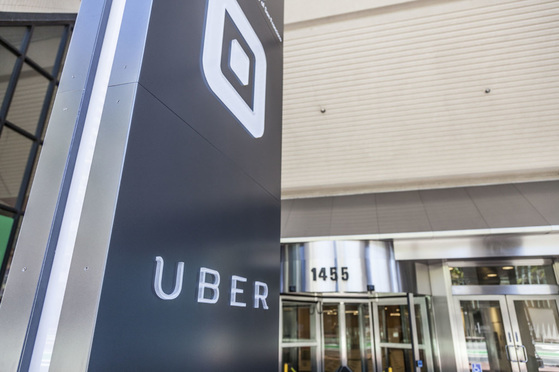Uber Faces Class Action Over Alleged Widespread Driver Sexual Assault
A new complaint says the ride-hailing giant has prioritized profits over rider safety, allowing hundreds of women to become victims of sexual assault, rape and harassment.
November 14, 2017 at 03:32 PM
5 minute read

SAN FRANCISCO — Uber Technologies Inc. on Tuesday was hit with a class action lawsuit brought on behalf of women who have been sexually assaulted or raped by drivers for the ride-hailing giant.
The suit was filed by Wigdor LLP, a New York law firm that has previously represented women who were allegedly victims of sexual violence at the hands of Uber drivers. One such case against the company settled under confidential terms in November 2016.
The new class action seeks to represent what it says are more than 1,000 riders in the United States—mainly women, although the complaint says it includes men as well—who have been raped, sexually assaulted or subjected to gender-based harassment by Uber drivers over the past four years. The named plaintiffs are two women, in Florida and Los Angeles, respectively, who allege they were raped by Uber drivers.
“On notice of the magnitude of the number of passengers who have experienced sexual harassment and gender-based violence, Uber should have made drastic changes to the way that it screens and monitors drivers,” says the complaint, which was filed in the U.S. District Court for the Northern District of California.
“Instead, over the last seven years, Uber has done everything possible to continue using low-cost, woefully inadequate background checks on drivers and has failed to monitor drivers for any violent or inappropriate conduct after they are hired,” it adds.
An Uber spokesman did not immediately respond to a request for comment Tuesday.
The lawsuit demands that Uber implement a number of changes to how it vets potential drivers, including in-person interviews and fingerprinting, and require the installation of cameras in driver vehicles. It also seeks damages for the alleged harms the victims have endured, plus punitive damages.
The complaint argues that the victims' claims are not affected by arbitration clauses in Uber's terms of service with riders, because under California Supreme Court decisions, “Uber cannot cause consumers to waive a statutory right to seek public injunctive relief in any forum.”
The case points in part to reports of assault and harassment that have surfaced on Twitter as part of the #MeToo campaign, which emerged in the wake of sexual harassment allegations against Harvey Weinstein and his entertainment company.
One of the tweets cited in the complaint reads: “A few years ago, I was in an Uber arriving at my apartment when the driver made inappropriate comments and grabbed at my crotch. #MeToo.”

SAN FRANCISCO — Uber Technologies Inc. on Tuesday was hit with a class action lawsuit brought on behalf of women who have been sexually assaulted or raped by drivers for the ride-hailing giant.
The suit was filed by
The new class action seeks to represent what it says are more than 1,000 riders in the United States—mainly women, although the complaint says it includes men as well—who have been raped, sexually assaulted or subjected to gender-based harassment by Uber drivers over the past four years. The named plaintiffs are two women, in Florida and Los Angeles, respectively, who allege they were raped by Uber drivers.
“On notice of the magnitude of the number of passengers who have experienced sexual harassment and gender-based violence, Uber should have made drastic changes to the way that it screens and monitors drivers,” says the complaint, which was filed in the U.S. District Court for the Northern District of California.
“Instead, over the last seven years, Uber has done everything possible to continue using low-cost, woefully inadequate background checks on drivers and has failed to monitor drivers for any violent or inappropriate conduct after they are hired,” it adds.
An Uber spokesman did not immediately respond to a request for comment Tuesday.
The lawsuit demands that Uber implement a number of changes to how it vets potential drivers, including in-person interviews and fingerprinting, and require the installation of cameras in driver vehicles. It also seeks damages for the alleged harms the victims have endured, plus punitive damages.
The complaint argues that the victims' claims are not affected by arbitration clauses in Uber's terms of service with riders, because under California Supreme Court decisions, “Uber cannot cause consumers to waive a statutory right to seek public injunctive relief in any forum.”
The case points in part to reports of assault and harassment that have surfaced on Twitter as part of the #MeToo campaign, which emerged in the wake of sexual harassment allegations against Harvey Weinstein and his entertainment company.
One of the tweets cited in the complaint reads: “A few years ago, I was in an Uber arriving at my apartment when the driver made inappropriate comments and grabbed at my crotch. #MeToo.”
This content has been archived. It is available through our partners, LexisNexis® and Bloomberg Law.
To view this content, please continue to their sites.
Not a Lexis Subscriber?
Subscribe Now
Not a Bloomberg Law Subscriber?
Subscribe Now
NOT FOR REPRINT
© 2025 ALM Global, LLC, All Rights Reserved. Request academic re-use from www.copyright.com. All other uses, submit a request to [email protected]. For more information visit Asset & Logo Licensing.
You Might Like
View All
California Walnut Grower and German Investment Firm Vie for Lead Plaintiff Status in Super Micro Securities Action

Judge Recommends Disbarment for Attorney Who Plotted to Hack Judge's Email, Phone
3 minute read

Orrick Hires Longtime Weil Partner as New Head of Antitrust Litigation
Trending Stories
- 1Uber Files RICO Suit Against Plaintiff-Side Firms Alleging Fraudulent Injury Claims
- 2The Law Firm Disrupted: Scrutinizing the Elephant More Than the Mouse
- 3Inherent Diminished Value Damages Unavailable to 3rd-Party Claimants, Court Says
- 4Pa. Defense Firm Sued by Client Over Ex-Eagles Player's $43.5M Med Mal Win
- 5Losses Mount at Morris Manning, but Departing Ex-Chair Stays Bullish About His Old Firm's Future
Who Got The Work
J. Brugh Lower of Gibbons has entered an appearance for industrial equipment supplier Devco Corporation in a pending trademark infringement lawsuit. The suit, accusing the defendant of selling knock-off Graco products, was filed Dec. 18 in New Jersey District Court by Rivkin Radler on behalf of Graco Inc. and Graco Minnesota. The case, assigned to U.S. District Judge Zahid N. Quraishi, is 3:24-cv-11294, Graco Inc. et al v. Devco Corporation.
Who Got The Work
Rebecca Maller-Stein and Kent A. Yalowitz of Arnold & Porter Kaye Scholer have entered their appearances for Hanaco Venture Capital and its executives, Lior Prosor and David Frankel, in a pending securities lawsuit. The action, filed on Dec. 24 in New York Southern District Court by Zell, Aron & Co. on behalf of Goldeneye Advisors, accuses the defendants of negligently and fraudulently managing the plaintiff's $1 million investment. The case, assigned to U.S. District Judge Vernon S. Broderick, is 1:24-cv-09918, Goldeneye Advisors, LLC v. Hanaco Venture Capital, Ltd. et al.
Who Got The Work
Attorneys from A&O Shearman has stepped in as defense counsel for Toronto-Dominion Bank and other defendants in a pending securities class action. The suit, filed Dec. 11 in New York Southern District Court by Bleichmar Fonti & Auld, accuses the defendants of concealing the bank's 'pervasive' deficiencies in regards to its compliance with the Bank Secrecy Act and the quality of its anti-money laundering controls. The case, assigned to U.S. District Judge Arun Subramanian, is 1:24-cv-09445, Gonzalez v. The Toronto-Dominion Bank et al.
Who Got The Work
Crown Castle International, a Pennsylvania company providing shared communications infrastructure, has turned to Luke D. Wolf of Gordon Rees Scully Mansukhani to fend off a pending breach-of-contract lawsuit. The court action, filed Nov. 25 in Michigan Eastern District Court by Hooper Hathaway PC on behalf of The Town Residences LLC, accuses Crown Castle of failing to transfer approximately $30,000 in utility payments from T-Mobile in breach of a roof-top lease and assignment agreement. The case, assigned to U.S. District Judge Susan K. Declercq, is 2:24-cv-13131, The Town Residences LLC v. T-Mobile US, Inc. et al.
Who Got The Work
Wilfred P. Coronato and Daniel M. Schwartz of McCarter & English have stepped in as defense counsel to Electrolux Home Products Inc. in a pending product liability lawsuit. The court action, filed Nov. 26 in New York Eastern District Court by Poulos Lopiccolo PC and Nagel Rice LLP on behalf of David Stern, alleges that the defendant's refrigerators’ drawers and shelving repeatedly break and fall apart within months after purchase. The case, assigned to U.S. District Judge Joan M. Azrack, is 2:24-cv-08204, Stern v. Electrolux Home Products, Inc.
Featured Firms
Law Offices of Gary Martin Hays & Associates, P.C.
(470) 294-1674
Law Offices of Mark E. Salomone
(857) 444-6468
Smith & Hassler
(713) 739-1250






